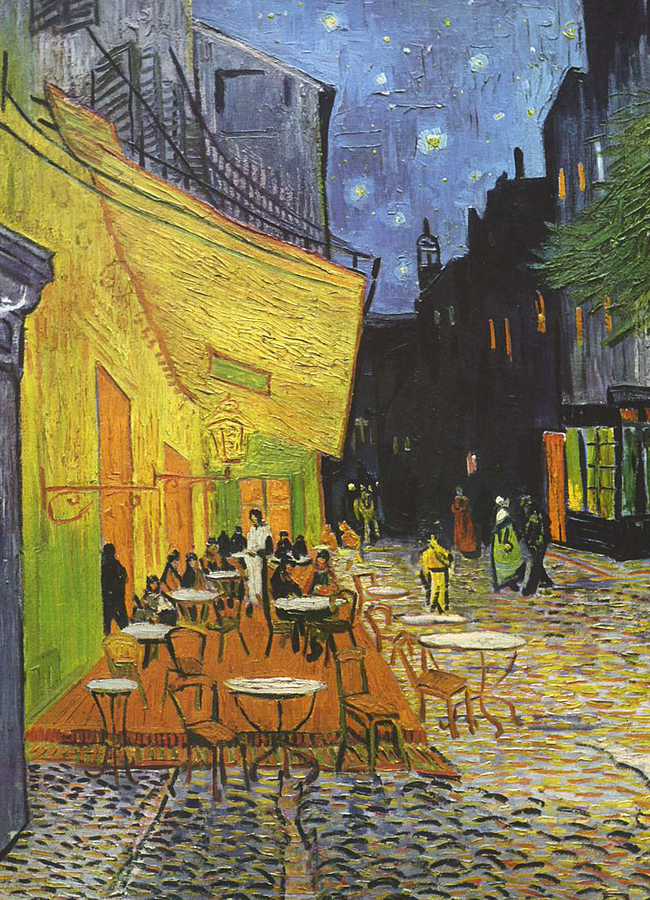Van Gogh's travels and experiences were crucial to the development of his unique artistic style. His use of color and brushwork was heavily influenced by the landscapes and cultures he encountered, and his work continues to inspire and captivate viewers to this day.
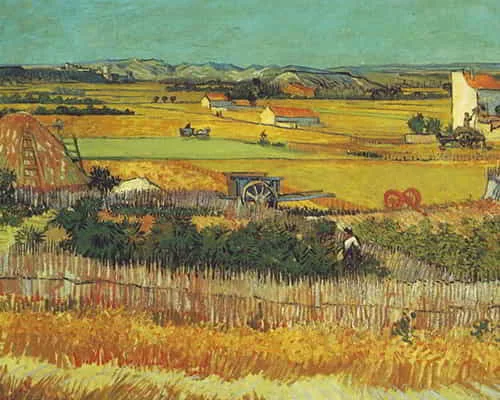
the netherlands
1853-1885He was heavily influenced by the landscape and the people around him. He frequently painted peasant laborers and rural scenes, and his use of dark, earthy colors reflects the Dutch countryside.
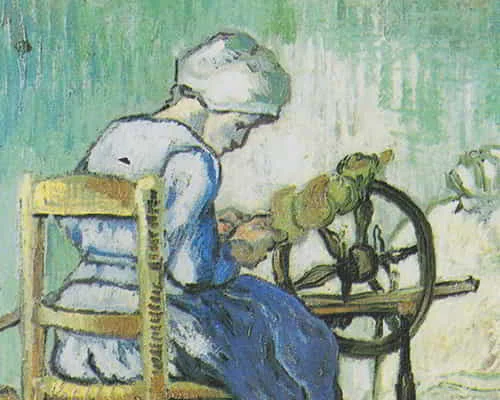
Antwerp and Brussels, Belgium
1880-1881He was exposed to the work of contemporary artists like Millet and Rembrandt while at the Royal Academy of Fine Arts. He experimented with different techniques and styles during this time, and his work began to take on a more somber tone.
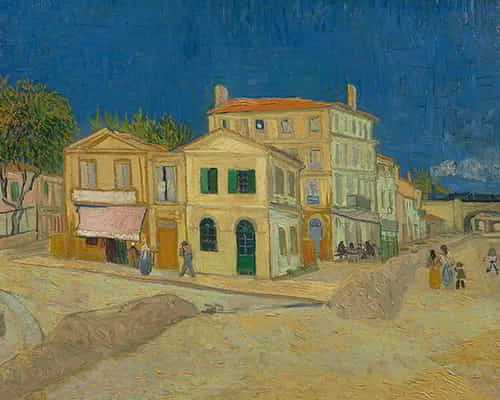
paris, france
1886-1888Van Gogh moved to Paris in 1886 and was heavily influenced by the Impressionists and Post-Impressionists, particularly the works of Claude Monet and Georges Seurat. He began experimenting with brighter colors and more expressive brushstrokes, and his work became more vibrant and lively.
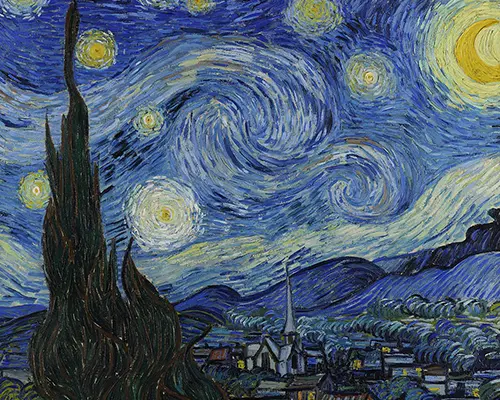
Arles, France
1888-1889He moved to Arles seeking warmer weather and brighter light. He was deeply inspired by the landscape and the vibrant colors of the Mediterranean, and his work during this period is characterized by bold, swirling brushstrokes and vivid, contrasting colors.
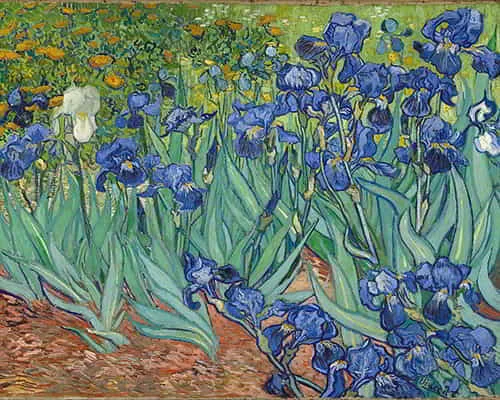
Saint-Rémy-de-Provence, France
1889-1890Van Gogh voluntarily committed himself to the Saint-Paul-de-Mausole asylum in Saint-Rémy-de-Provence in 1889, where he continued to paint prolifically. He was surrounded by gardens and nature, and his work during this period often features swirling, organic forms and rich, natural colors.
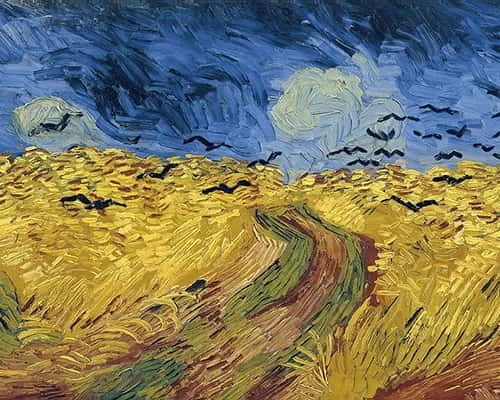
Auvers-sur-Oise, France
1890He moved to Auvers-sur-Oise where he was drawn to the pastoral landscapes and the simple way of life there, and his work during this period features many views of the town and the surrounding countryside. However, he also struggled with mental illness and took his own life in July of that year.
